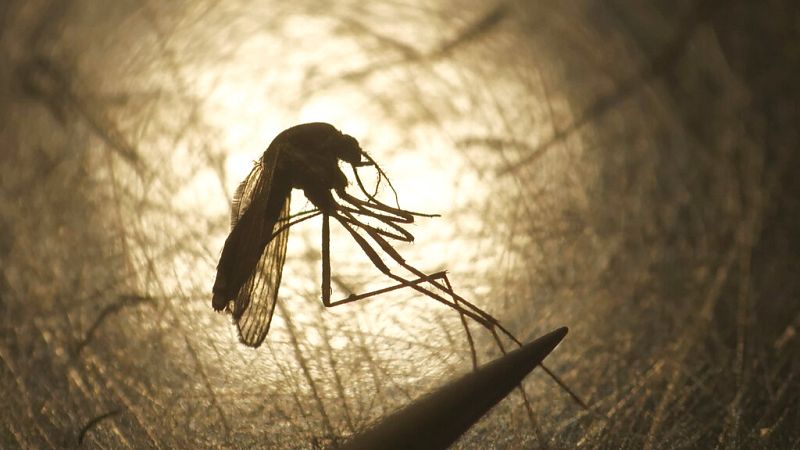
Ten people have died of West Nile virus in Italy this year, with cases of the mosquito-borne illness also reported in other parts of Europe.
As summer heats up, health authorities have warned Europeans to take steps to prevent themselves from being infected with the West Nile virus and other mosquito-borne illnesses, including chikungunya, dengue, and Zika.
But what exactly do we know about the West Nile virus?
Where does the virus come from?
Spread through the bite of infected mosquitoes, the West Nile virus infects both humans and birds. But in very rare cases, it can also be transmitted through blood transfusions, organ transplants, and breast milk.
Its name dates back to 1937, when it first appeared in the West Nile region of Uganda. It was introduced to the United States in 1999, and has since become widely established across the globe, according to the World Health Organization (WHO).
Today, it is commonly found in Africa, Europe, the Middle East, North America, and west Asia.
West Nile virus often spreads from mid summer to early autumn in regions with warmer weather. Research has shown that climate change is accelerating the spread of mosquito-borne viruses in Europe.
In addition to Italy, infections have been reported in Bulgaria, France, Greece, and Romania this year, according to the European Centre for Disease Prevention and Control (ECDC).
The virus was also detected in mosquitoes in the United Kingdom for the first time earlier this year.
What are the symptoms of West Nile virus?
Most people who are infected with West Nile virus will have no symptoms. But about one in five people will develop West Nile fiver, which causes body aches, headaches, vomiting, fatigue, rashes, and swollen lymph glands.
Around one in 150 infected people develop a more serious form of the disease that can cause neurological complications, coma, tremours, convulsions, muscle weakness, and paralysis.
Serious illness can occur in people of any age, however people over the age of 50 and some immunocompromised persons (for example, transplant patients) are at the highest risk for getting severely ill when infected with WNV.
People with compromised immune systems and those over the age of 50 are at higher risk of these complications.
In rare cases, West Nile virus can cause fatal neurological disease.
What is recovery like?
There is no vaccine or specific treatment for people with Nest Nile virus.
Rest, fluids, and pain medications can help alleviate some symptoms. Patients with a neuro-invasive illness are usually hospitalised and given intravenous fluids and respiratory support while they recover, the WHO said.
Once infected, people are believed to be protected against the virus for life.
Beyond treatment, public health authorities are focused on preventing people from infection in the first place.
These efforts rely heavily on local mosquito control programmes and personal protection. Authorities recommend that people use insect spray and wear long-sleeved shirts and trousers to keep themselves from being bitten by mosquitoes.







